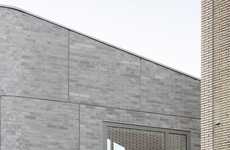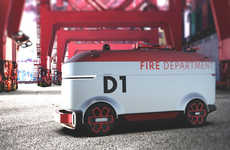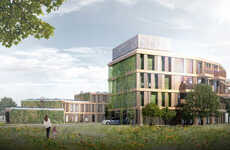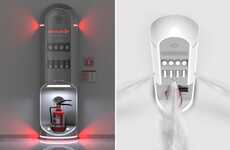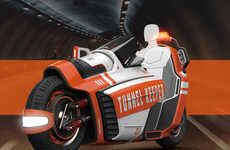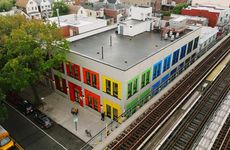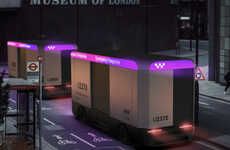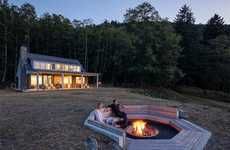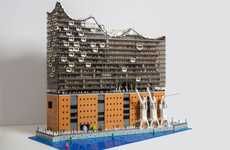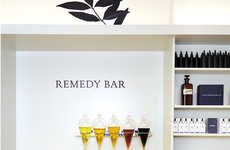
This Fire Station Design Reduces Vehicle Response Times
Joey Haar — July 4, 2017 — Art & Design
References: archdaily
When creating buildings for emergency services, efficiency is more important than aesthetics, but SAMYN and PARTNERS' fire station design is a rare example of a building that manages to combine both factors seamlessly. The circular fire station decreases response time for emergency vehicles thanks to the building's location as well as its shape.
The fire station, which is located in Charleroi, Belgium, is right at the edge of the motorway, giving the firefighters quick access to a main artery through the town. As if this location didn't reduce response time enough on its own, the fire station design makes use of the continuity of a circle to increase it further. The circular fire engine hangar has garage doors around the entire building, and those engines are parked facing the doorways. When an alarm sounds, firefighters can jump into the vehicles and exit the building all at once, driving clockwise around the circle to exit and ensuring that they don't interfere with one another.
The fire station, which is located in Charleroi, Belgium, is right at the edge of the motorway, giving the firefighters quick access to a main artery through the town. As if this location didn't reduce response time enough on its own, the fire station design makes use of the continuity of a circle to increase it further. The circular fire engine hangar has garage doors around the entire building, and those engines are parked facing the doorways. When an alarm sounds, firefighters can jump into the vehicles and exit the building all at once, driving clockwise around the circle to exit and ensuring that they don't interfere with one another.
Trend Themes
1. Efficient Emergency Services Buildings - Designing emergency services building with focus on effectiveness and functionality to achieve high level of efficiency.
2. Circular-shaped Buildings - Creating architectural designs where circle-shaped buildings are used to optimize operations and processes.
3. Traffic Flow Optimization - Incorporating the location of buildings and their design to improve traffic flow for emergency services vehicles.
Industry Implications
1. Architecture - Exploring innovative ways to design buildings that prioritize efficiency and functionality in emergency services.
2. Urban Planning - Developing designs that incorporate traffic flow and location of emergency services buildings to optimize response times.
3. Emergency Services - Adopting efficient building designs and locations to improve operations and response times of emergency services.
1.6
Score
Popularity
Activity
Freshness


